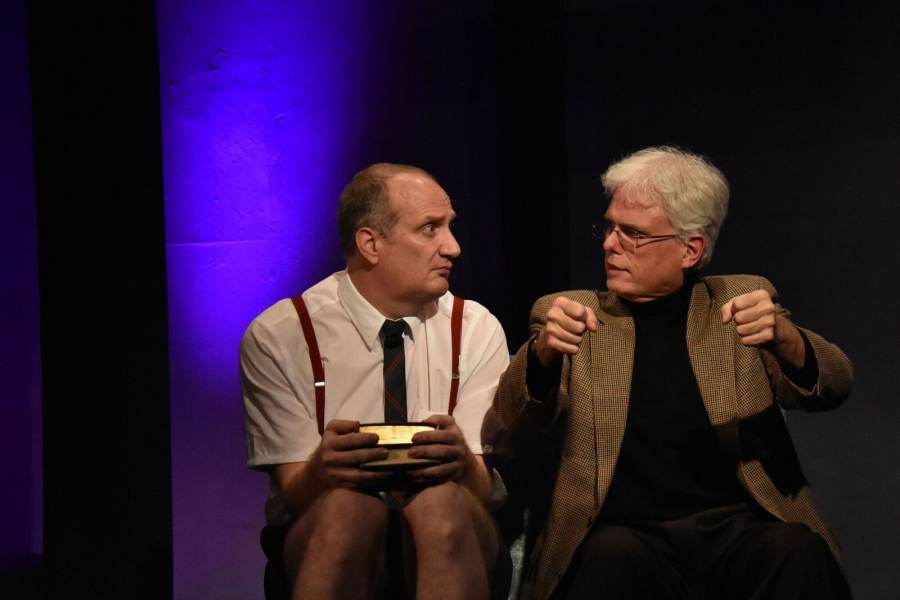

Sam and Dede, or My Dinner with André the Giant is an imaginative riff based off of a particularly quirky bond that formed between one of the leading figures of Modernist literature and one of the leading figures of professional wrestling, namely, Samuel Beckett and André the Giant. The nugget of truth in this tale is that in 1953 Beckett purchased a plot of land near a hamlet a bit outside of Paris, where, with the help of some of his new neighbors, he erected for himself a cottage. One of those neighbors was a Bulgarian-born farmer named Boris Rousimoff, and Beckett and Rousimoff would go on to become friendly with one another. When Rousimoff’s son was twelve years old, surpassing six feet tall and weighing 240 pounds, he could no longer fit on the school bus. But Beckett had a truck big enough to fit Rousimoff’s son and he offered to give him lifts to school in that truck. Rousimoff’s son, who went by Dede, would grow up to become professional wrestling icon André the Giant.
Dilorio’s play, directed by Leah S. Abrams, is essentially broken up into three parts inspired by this unexpected intersection of prominent people who were prominent for wildly different reasons. The first part is a musing on what those rides to school in Beckett’s truck might have been like; the second part is set years later and imagines Beckett (Dave Sikula) drinking copious amounts of wine with André the Giant (Brendan Averett) after one of the latter’s wrestling matches; and the third part is set outside of time altogether, an homage to Beckett’s Endgame that has the two leads with their heads protruding out of ash bins delivering simultaneous, overlapping monologues for a reminiscing coda of sorts.
From part one to part two, we see Dede change from a shy but unavoidably visible boy to a boisterously confident star of the ring, but this play isn’t really about story arcs and character development—it’s more about just enjoying the intersection between two presumably disparate people. None of it digs too deep or anything, but it’s really all the more charming for its relaxed airiness. As it’s a fun little piece, it works as a nice reminder of both how intensely human Beckett was under his abstractions, but also, even within the confusion of his abstractions and overt bleakness, of how funny Beckett was and is. He had a fantastic sense of humor, though of an undeniably gallows variety. And it also shines a light on André the Giant’s humanity, on the heart of this sort of over-the-top entertainer who was a kind of cartoon in the public eye. There’s a pleasant touch of poignancy in all this which is all the more welcome in that the play doesn’t really strive for sentimentality—it’s just kind of there. The story here might be considered as a kind of breathing Venn diagram with a wide and friendly overlap between these two men and also, interestingly, between their separate arenas of spectacle.
Well-acted, well-written, well-directed, Sam and Dede, or My Dinner with André the Giant, is both a conversation and an interesting topic of conversation that is likely to add a few chuckles and a smile to your evening.